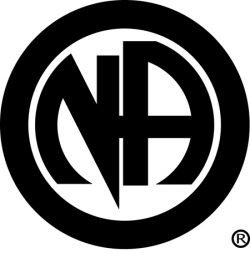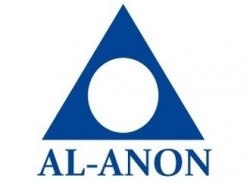12 Step Resources
There are many different 12 step programs and Anonymous groups around the world. They are usually organized by the specific type of addiction members experience, though they are often open to anyone dealing with any kind of substance use disorder or addiction. This list of resources shows the most common 12 step programs.
- Alcoholics Anonymous: Alcoholics Anonymous (AA) is the first ever twelve step group. It was founded in 1935 by Bill Wilson and Bob Smith, who wrote the 12 steps along with other founding members. The AA program helps people achieve and maintain sobriety through a spiritual awakening, along with mutual support and fellowship. AA is a large organization with chapters around the world. Anyone can join, and membership is anonymous.
- Narcotics Anonymous: Narcotics Anonymous (NA) is very similar to Alcoholics Anonymous, and it follows the same 12 step model but has its own Basic Text, where the AA program follows the Big Book. It was founded in 1953 and has grown into a global, multilingual community-based organization. NA membership and meetings are free and open to anyone who wants to maintain a drug-free lifestyle.
While Alcoholics Anonymous and Narcotics Anonymous are arguably the two best known 12 step programs, there are many others that have evolved from the original AA teachings. They all have the same basic principles, though the actual wording and content of the twelve steps may have been adapted.
Other 12 Step Programs for Substance Use Disorders:

Narcotics Anonymous is one of the most well known 12 step groups.
- Cocaine Anonymous: Cocaine Anonymous (CA) is a 12 step organization that is based on the 12 steps of AA. While many of its members have a history of cocaine, crack cocaine, or speed use, it is not a requirement for membership and anyone who desires to stop using ‘mind-altering substances’ is welcome to join. As with other twelve step programs membership is free.
- Crystal Meth Anonymous: Crystal Meth Anonymous (CMA) is a twelve step program that is designed to help people stop using crystal meth. The only membership requirement is that the individual has a desire to quit using meth, and there are no membership fees. CMA meetings and programs can be found around the USA, in the UK, Canada and Australia.
- Heroin Anonymous: Heroin Anonymous (HA), like the other Anonymous groups, is a 12 step recovery program made up of heroin addicts in recovery. Anyone with a desire to quit using heroin is welcome to join, and membership is free. It was founded in 2004, and meetings can be found in the USA, the UK, and Canada.
- Marijuana Anonymous: Marijuana Anonymous (MA) is a twelve step fellowship run by and for people who wish to stop using marijuana. Meetings are a vital part of the program, and membership is entirely free. MA meetings can be found in the USA and the UK.
- Nicotine Anonymous: Nicotine Anonymous (NicA) is a 12 step program that helps people live nicotine free. It was founded in 1982 and now has meetings in 38 countries. Membership is free, and only requires that people want to live a nicotine-free life.
- Pills Anonymous: Pills Anonymous (PA) is a 12 step recovery program that helps people overcome addiction to prescription pills. It was formed in 2008, and meetings can be found in many US states.
12 Step Programs for Behavioral Addictions:
The twelve steps form a program of recovery that determines how a person should lead their life. These steps and the principles behind them lead a person to recovery, and this can mean recovery of many kinds. Twelve step programs have been formed to help people with mental health challenges, behavioral addictions, and life trauma in addition to chemical dependency issues.
- Clutterers Anonymous: Clutterers Anonymous (CLA) is a program that uses the 12 steps to help people who have a problem with accumulation of clutter. CLA meetings help people work through the underlying causes of their clutter problem. CLA is found across the USA, and in England, Germany and Iceland.
- Co-Dependents Anonymous: Co-Dependents Anonymous (CoDA) uses the 12 steps to help people develop healthy relationships. By working the 12 steps and attending meetings members are helped to love themselves and establish healthy relationships, working through past histories and co-dependent behaviors. Meetings are held in several countries.
- Debtors Anonymous: Debtors Anonymous (DA) is a 12 step fellowship for people compulsively incur unsecured debt and who want to stop doing so. The group helps members keep careful financial records and develop healthy spending patterns. DA meetings are held in nine different countries around the world.
- Emotions Anonymous: Emotions Anonymous (EA) is a program that uses the twelve steps to help people recover from mental and emotional illness. The group strives to help members achieve emotional wellness. EA holds meetings in many cities of the USA.
- Food Addicts in Recovery Anonymous: Food Addicts in Recovery Anonymous (FA) is a recovery program based on the 12 steps. It helps people who have been obese, severely underweight, or who have struggled with an eating disorder develop a healthier relationship with food. FA helps many people in several different countries overcome their obsessions with food.
- Food Addicts Anonymous: Food Addicts Anonymous (FAA) is a twelve-step recovery program for people with food addictions. They believe food addiction to be a biochemical disorder that can be managed by working the steps and eliminating addictive foods. FAA groups are established in several different countries.
- Gamblers Anonymous: Gamblers Anonymous (GA) is a 12 step program for people who have a gambling problem. The only requirement for membership is a desire to stop gambling, and membership is free. GA meetings take place around the world.
- Overeaters Anonymous: Overeaters Anonymous (OA) is a recovery program that uses the 12 steps to help people who have food-related problems. The group is open to overeaters, people with binge eating disorder, bulimia, anorexia, or any other problem with compulsive eating and food in general. OA has a membership that spans 75 countries.
- On-line Gamers Anonymous: On-Line Gamers Anonymous (OLGA) is a 12 step program for people struggling with video game addiction. The group is also open to people who struggle with excessive game play of other kinds, such as computer, console or on-line gaming. OLGA is largely made up of online message boards and online meetings.
- Sexaholics Anonymous: Sexaholics Anonymous (SA) is a program that uses the twelve-step model to help people who struggle with compulsive sexual acting-out. SA helps people who have an addiction to ‘lust’ and who wish to be sexually ‘sober’, meaning that they will not engage in sexual acts with themselves or anyone other than their spouse. It is one of several Anonymous groups for people who are working toward recovery from sex addiction.
- Sex Addicts Anonymous: Sex Addicts Anonymous (SAA) is a twelve-step fellowship for anyone who is working to overcome sex addiction. It is open to people of all sexual orientations, and they allow each member to define what sexual sobriety means for themselves.
- Sex and Love Addicts Anonymous: Sex and Love Addicts Anonymous (SLAA), sometimes called the Augustine Fellowship, is a twelve-step program that helps people overcome sex and love addictions. Meetings for the organization can be found in over 40 different countries.
- Sexual Compulsives Anonymous: Sexual Compulsives Anonymous (SCA) is a recovery program that helps people find recovery from sexual compulsion through the 12 steps. SCA started off as a program for gay and bisexual men, but is now open to people of all sexual orientations. The only requirement for membership is the desire to stop having compulsive sex.
- Survivors of Incest Anonymous: Survivors of Incest Anonymous (SIA) is a 12 step recovery fellowship for people who are recovering from the consequences of childhood sexual abuse. SIA defines incest broadly, including any sexual encounter by a family member, extended family member, family friend, clergy member, another child, or anyone who betrayed the child’s trust. This can include verbal or physical abuse, whether it was a one time thing or occurred many times.
- Sexual Recovery Anonymous: Sexual Recovery Anonymous (SRA) is a twelve-step program that helps people overcome sexual addiction through the sharing of experience, strength and hope. Groups are very diverse, and SRA has meetings around the USA.
- Underearners Anonymous: Underearners Anonymous (UA) is a program that uses the twelve steps of recovery to help people who are chronic underearners. They believe underearning is a result of underachieving and of having an inability to fully express one’s capabilities. UA has groups and meetings in several countries around the world.
- Workaholics Anonymous: Workaholics Anonymous (WA) helps people who are “powerless over compulsive work, worry, or activity” through the use of a twelve step program. This includes people who are overworkers, who have unmanageable procrastination issues, and who suffer from work aversion. This is not limited to paid work, and also includes things like house work, hobbies and fitness. WA groups can be found in several different countries.
12 Step Programs for Families of Addicts:

Al-Anon is a support group for family and friends of alcoholics.
An individual who experiences an addiction or emotional problem is not the only one who suffers because of it – their loved ones often are affected as well. In recognition of and response to this, several 12-step programs have been established for family members and loved ones of addicts.
- Adult Children of Alcoholics: Adult Children of Alcoholics (ACA) is a fellowship that uses the twelve-step model to help adults who grew up in alcoholic or dysfunctional homes. Membership is not limited to people whose parents were alcoholics, but also includes those who grew up around addicts of all kinds, codependents, or had otherwise troubling childhoods. ACA groups have been established across the USA and in several other countries.
- Al-Anon Family Groups: Al-Alon Family Groups, also called simply Al-Anon, is a large fellowship of people who have suffered as a result of a family member or loved one’s alcoholism. Al-Anon welcomes all people, whether or not their loved one has recognized their alcohol problem themselves.
- Alateen: Alateen is a section of Al-Anon specifically for young people who have been affected by another’s alcoholism, usually that of a family member.
- Co-Anon Family Groups: Co-Anon Family Groups, Co-Anon for short, is a program that uses the 12 steps to help family members and friends of cocaine addicts find support and recovery. Meetings give people a venue to share support and strength, as they believe addiction is a family disease.
- COSA: COSA is a program for formerly co-dependents of sex addicts. COSA helps people who have been affected by the compulsive sexual behavior of others find recovery and support through the teachings of the 12 steps.
- Families Anonymous: Families Anonymous (FA) is a program that uses the 12 steps to help family and friends of addicts find support and recovery for themselves. FA is open to all people who have been affected by another person’s addiction, whether it be to drugs, alcohol, or behavioral issues.
- Gam-Anon: Gam-Anon is a 12 step program for family and friends of gambling addicts and all people who have been affected by another person’s compulsive gambling. Meetings are held around the USA and in other countries.
- Nar-Anon Family Groups: Nar-Anon is a program for people who have suffered due to someone else’s addiction. This program uses a twelve-step model to help people find their own recovery and to find support in others with a similar experience. Meetings are held worldwide, and there is a Narateen section for teens who have suffered because of another person’s addiction.